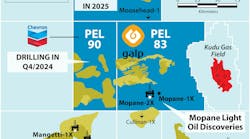Brazilian Defense Minster Nelson Jobim claims that an oil discovery off Brazil underlines the need for his country to develop a nuclear submarine for protection.
“When you have a large natural source of wealth discovered in the Atlantic, it’s obvious you need the means to protect it,” Jobim said. But lost production at Brazil’s platforms has recently cost more than any attack that would require a nuclear submarine.
That’s clear to anyone who follows the news about Brazil these days. The real enemy is not lurking offshore. The real enemy appears to be well ensconced in onshore boardrooms.
Evidence of that emerged recently when Brazil’s Federal Audit Court, better known as TCU, halted the payment of $182 million by state-run Petroleo Brasileiro SA (Petrobras) to two local shipyards.
Petrobras overcharged?
The payments were the remainder of the construction cost for the P-52 and P-54 oil platforms that Petrobras is about to take on stream just off Brazil’s coast in coming weeks.
The court halted a $92.2 million payment to the Keppel Fels shipyard and an $89.3 million payment to the Jurong shipyard, arguing it found signs that Petrobras was being overcharged for the construction of the two structures.
In June Petrobras had already said construction costs for the P-52 were coming in at $1.1 billion, or 20% over their original budget.
On Nov. 20 Brazilian officials acknowledged that Petrobras is having problems increasing production in existing fields with new offshore platforms and floating units.
Average production by Petrobras during January-September reached 1.796 million b/d, an increase of just 33,000 b/d over the same period in 2006. This is considerably lower than the 440,000 b/d of additional production expected from the new platforms and floating units purchased over the past 21 months.
Corruption at play?
Petrobras Chief Financial Officer Almir Barbassa, in a conference call with investors, admitted that the firm has problems bringing the new units to full production and fully exploiting their installed capacity.
“We’re looking for other ways to make full use of them,” he said, adding, “It’s part of the process. Some oil wells respond in a different way because of the geological structure of the deposit. We still don’t have the solution.”
He did not mention the corruption which has hit the country’s offshore units in the past year—and hit them hard.
Remember? In July Brazilian federal police arrested three top Petrobras executives, along with the directors of three shipyards—Angraporto Offshore, Maua Jurong, and IESA—and others for alleged involvement in fixing bids of contracts for the repair of at least three offshore oil platforms.
Petrobras said it had suspended its employees and installed a commission to eliminate immediately any possible irregularities. Maybe some of those possible irregularities have yet to be fully torpedoed.
